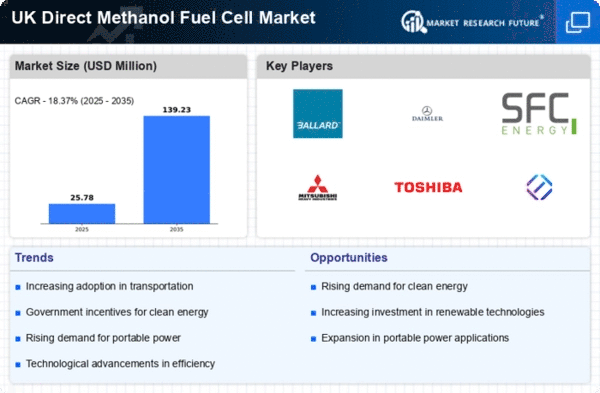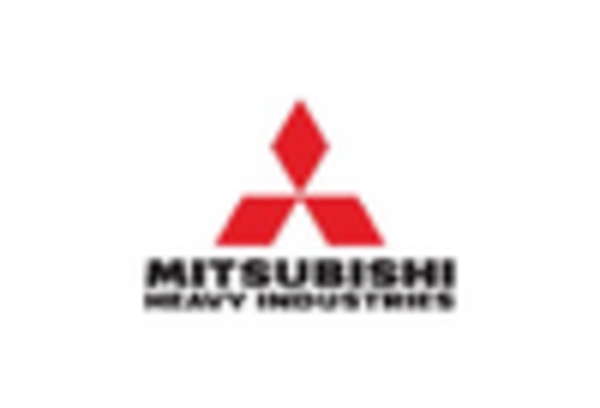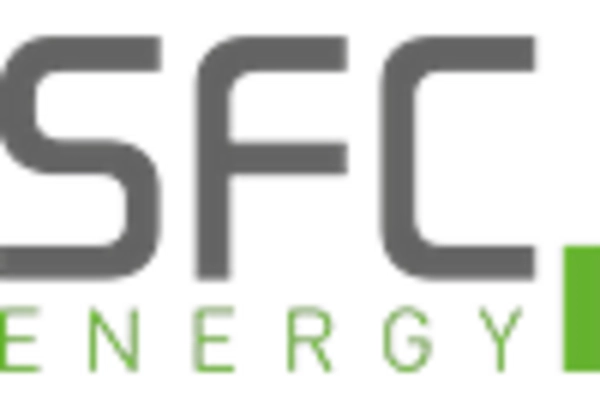Increasing Environmental Awareness
The growing concern regarding climate change and environmental degradation appears to be a significant driver for the direct methanol-fuel-cell market. As consumers and businesses in the UK become more environmentally conscious, there is a rising demand for cleaner energy solutions. Direct methanol fuel cells, which produce electricity with minimal emissions, align well with these sustainability goals. The UK government has set ambitious targets to reduce greenhouse gas emissions by 68% by 2030 compared to 1990 levels, which may further stimulate interest in alternative energy sources. This shift in consumer preferences could potentially lead to a market growth rate of around 15% annually, as more entities seek to adopt eco-friendly technologies in their operations.
Advancements in Fuel Cell Technology
Technological innovations in fuel cell systems are likely to enhance the performance and efficiency of direct methanol fuel cells. Recent developments have focused on improving the energy density and reducing the costs associated with fuel cell production. For instance, advancements in catalyst materials and membrane technology could lead to a reduction in the overall cost of fuel cells by approximately 20% over the next few years. This progress may encourage more industries in the UK to invest in direct methanol-fuel-cell technology, thereby expanding its application in various sectors, including transportation and stationary power generation. The direct methanol-fuel-cell market could see a substantial increase in adoption rates as these technologies become more accessible and economically viable.
Growing Demand for Backup Power Systems
The increasing reliance on uninterrupted power supply systems in various sectors, including healthcare, telecommunications, and data centers, is driving the demand for reliable backup power solutions. Direct methanol fuel cells offer a compact and efficient alternative to traditional backup power systems, which may be less environmentally friendly. The UK market for backup power solutions is projected to grow at a CAGR of 10% over the next five years, indicating a robust opportunity for the direct methanol-fuel-cell market. As businesses seek to ensure operational continuity while minimizing their carbon footprint, the adoption of direct methanol fuel cells as a backup power source could become more prevalent, further propelling market growth.
Expansion of Transportation Applications
The transportation sector in the UK is undergoing a transformation towards cleaner energy solutions, which may significantly impact the direct methanol-fuel-cell market. With the UK government committing to banning the sale of new petrol and diesel cars by 2030, there is a pressing need for alternative fuel sources. Direct methanol fuel cells could play a crucial role in this transition, particularly in public transport and logistics. The market for fuel cell vehicles is expected to grow at a CAGR of 12% through 2030, driven by both regulatory pressures and consumer demand for sustainable transport options. This shift could lead to increased investments in direct methanol fuel-cell technology, thereby enhancing its market presence in the transportation sector.
Support from Renewable Energy Initiatives
The UK government has been actively promoting renewable energy initiatives, which may indirectly benefit the direct methanol-fuel-cell market. Policies aimed at increasing the share of renewables in the energy mix, such as wind and solar, could create a conducive environment for the integration of fuel cell technologies. The Renewable Energy Guarantees of Origin (REGO) scheme, for instance, encourages the use of renewable energy sources, which could lead to a higher demand for complementary technologies like direct methanol fuel cells. As the UK aims to achieve net-zero emissions by 2050, the synergy between renewable energy and fuel cell technologies may foster a more robust market landscape, potentially increasing the market size by 25% in the coming years.
















